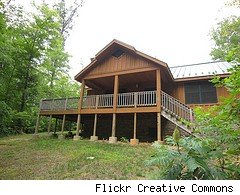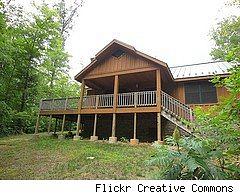Buying a cottage: Top five questions to ask
(NC) — Cottage season officially begins after Victoria Day on 25 May 2012. Cottaging is arguably the favourite summer pastime of many Canadians, so it's no surprise that at some point many Canadians consider purchasing a cottage of their own.
And while many think of their cottage as a solid real estate investment, purchasing a cottage without doing all your homework can lead to serious headaches.
Before rushing to buy, Richard Harrison, the cottage finance expert at Meridian, Ontario's largest credit union, suggests there are five key questions to ask yourself before diving in to cottage ownership.
1. How much use will the property realistically get? Summers are short and schedules are busy. How much will the cottage actually be used? Do you plan on renting it out to supplement your income?
2. Have you considered all the costs? Similar to purchasing a home, there are costs associated with the purchase of a cottage beyond the initial price tag. Additional costs such as taxes, maintenance, and travel should all be budgeted.
3. Have you shopped around? Popular cottage destinations can lead to overheated markets. Have you done enough research and considered all the options?
4. Is it a good investment? Buying a cottage may mean that most of your savings are in real estate, does this make sense for you financially? Will the property appreciate?
5. What financing is available to you? Cottages often fall into one of two categories and not all cottages qualify for traditional mortgages. Type A properties include cottages that can be utilized all year road and have features similar to residential homes such as running water and central heating systems. Type B cottages on the other hand are classified as more rustic properties with minimal creature comforts and are often not winterized.
“Financing for Type A properties is often treated like financing a second home with traditional mortgage options applicable to them,” says Harrison. “On the other hand, most Type B properties are not eligible for traditional mortgages and instead, personal loans are often extended to finance the property.”
Harrison recommends that interested cottage buyers do their research and work with a trusted financial advisor and real estate agent to make sure their getting the best possible value in their cottage investment.
More information is available online at www.meridiancu.ca
Comments
There are 0 comments on this post













